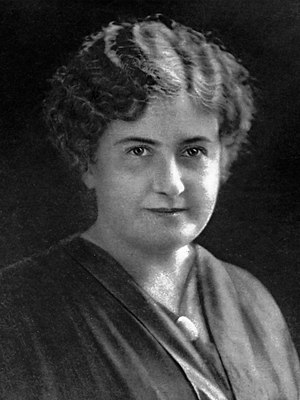
There can be no substitute for work neither affection nor physical well-being can replace it.
Share this quote:
The respect and protection of woman and of maternity should be raised to the position of an inalienable social duty and should become one of the principles of human morality.
Share this quote:
Establishing lasting peace is the work of education all politics can do is keep us out of war.
Share this quote:
Now, what really makes a teacher is love for the human child; for it is love that transforms the social duty of the educator into the higher consciousness of a mission.
Share this quote:
We all know the sense of comfort of which we are conscious when a good half of the floor space in a room is unencumbered this seems to offer us the agreeable possibility of moving about freely.
Share this quote:
Travel stories teach geography; insect stories lead the child into natural science; and so on. The teacher, in short, can use reading to introduce her pupils to the most varied subjects; and the moment they have been thus started, they can go on to any limit guided by the single passion for reading.
Share this quote:
The selfsame procedure which zoology, a branch of the natural sciences, applies to the study of animals, anthropology must apply to the study of man; and by doing so, it enrolls itself as a science in the field of nature.
Share this quote:
The greatest sign of success for a teacher... is to be able to say, The children are now working as if I did not exist.
Share this quote:
We discovered that education is not something which the teacher does, but that it is a natural process which develops spontaneously in the human being.
Share this quote:
The teacher must derive not only the capacity, but the desire, to observe natural phenomena. The teacher must understand and feel her position of observer: the activity must lie in the phenomenon.
Share this quote:
It is surprising to notice that even from the earliest age, man finds the greatest satisfaction in feeling independent. The exalting feeling of being sufficient to oneself comes as a revelation.
Share this quote:
At three years of age, the child has already laid the foundations of the human personality and needs the special help of education in the school. The acquisitions he has made are such that we can say the child who enters school at three is an old man.
Share this quote:
One test of the correctness of educational procedure is the happiness of the child.
Share this quote:
Personal health is related to self-control and to the worship of life in all its natural beauty - self-control bringing with it happiness, renewed youth, and long life.
Share this quote:
It is by developing the individual that he is prepared for that wonderful manifestation of the human intelligence, which drawing constitutes. The ability to see reality in form, in color, in proportion, to be master of the movements of ones own hand - that is what is necessary.
Share this quote:
If intelligence is the triumph of life, the spoken word is the marvellous means by which this intelligence is manifested.
Share this quote:
The childs mind is not the type of mind we adults possess. If we call our type of mind the conscious type, that of the child is an unconscious mind. Now an unconscious mind does not mean an inferior mind. An unconscious mind can be full of intelligence. One will find this type of intelligence in every being, and every insect has it.
Share this quote:
We cannot create observers by saying observe, but by giving them the power and the means for this observation and these means are procured through education of the senses.
Share this quote:
If education is always to be conceived along the same antiquated lines of a mere transmission of knowledge, there is little to be hoped from it in the bettering of mans future. For what is the use of transmitting knowledge if the individuals total development lags behind?
Share this quote:
In the first three years of life, the foundations of physical and also of psychic health are laid. In these years, the child not only increases in size but passes through great transformations. This is the age in which language and movement develop. The child must be safeguarded in order that these activities may develop freely.
Share this quote: